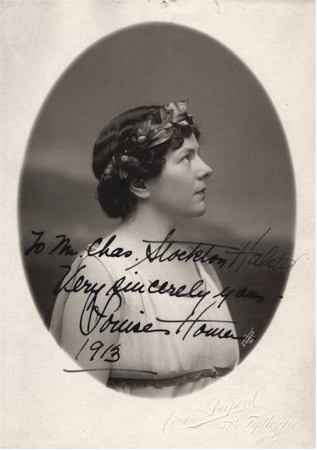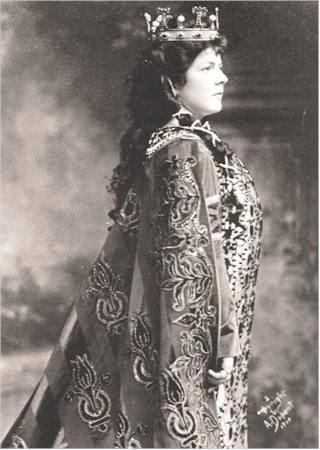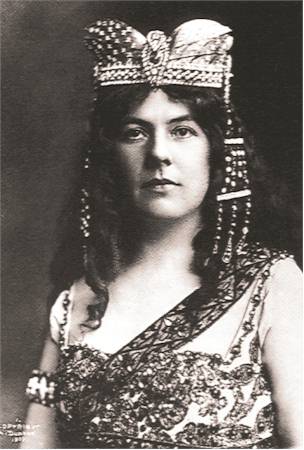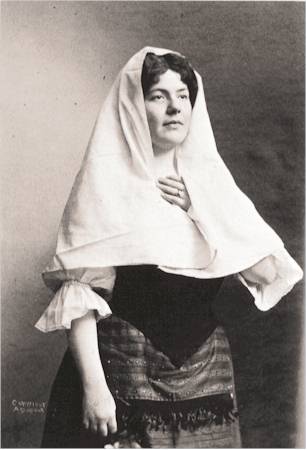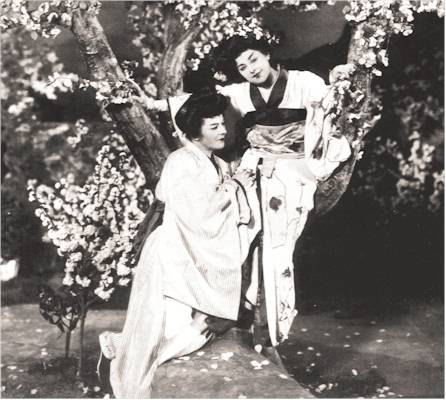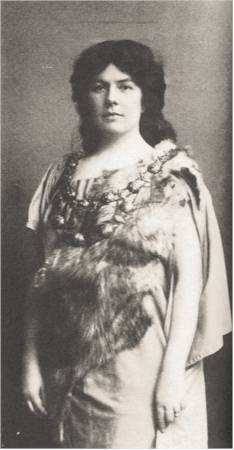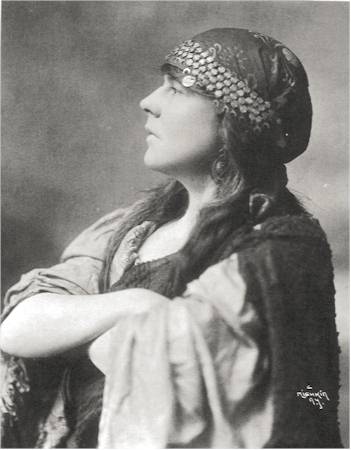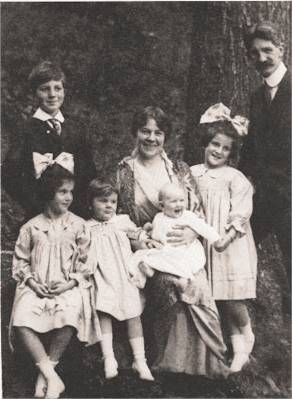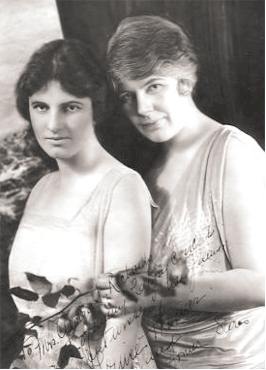American contralto, 1871 - 1947
(by courtesy of Ed Norton) Biographical notes: She was born Louise Dilworth Beatty in Pittsburgh and studied music at Philadelphia and Boston, then married the composer Sidney Homer in 1895 and went to Paris, where she studied singing with Fidčle König and Paul Lhérie (who had been the first Don José in Bizet’s Carmen). Louise made her operatic debut as Léonore in Donizetti’s La Favorite at Vichy in 1898. She sang Amneris and Lola at Covent Garden and was Ortrud and Maddalena in Brussels. Her American debut was with the Metropolitan Opera in 1900 where her first role was Amneris. During a very successful and long lasting Met career, she appeared at first mainly in Italian and French operas, but soon adding Wagnerian roles to her repertory. She created the Witch in Humperdinck’s Königskinder in 1910 and was a notable Orfeo in Toscanini’s revival of Gluck’s opera in 1909. After resigning from the Met in 1919, she sang with other major American companies (San Francisco, Chicago, Los Angeles). Her last appearance at the Met was as Azucena in 1929. She was mother of six children. One daugther became a singer, one son a pianist. The composer Samuel Barber was her nephew.
As Amneris
As Lola in Mascagni’s “Cavalleria rusticana”
Louise Homer (Suzuki) and Geraldine Farrar (Cio-Cio-San), Met 1907
As Kundry Comment: The wide range of her voice was remarkable, enabling her to encompass mezzo-soprano roles
almost as easily as contralto roles. Her roles included roles such as Siebel, Ortrud, Laura, Maddalena, Brangäne, Azucena, Venus, Dalila, Fidčs, Waltraute, Ulrica, Fricka, Erda, Dame
Quickly, Marina, Suzuki, Lola, Orfeo, the Witch in Humperdinck’s Königskinder and many leading roles in now forgotten operas. Nelly Melba called her the world’s most beautiful voice! It is said
that Louise was a very expressive artist and a phantastic actress.
As Azucena (photo by Herman Mishkin)
The singer was never satisfied with her own recordings. In my opininion, they are slightly disappointing. She had undoubtedly an impressive and very beautiful voice, but her singing is rather “uninspired”. She is not very good in florid work either. Her early recordings are certainly the best when she was in her prime. There are some fine ensemble recordings. In her favorite role as Amneris she sings opposite Enrico Caruso and the great Johanna Gadski. To me, she is much more a vivid and passionate singer in ensembles than on her solo recordings.
Louise Homer with her family
(courtesy of Ed Norton)
Mother and daughter
(courtesy of Ed Norton)
My warmest thanks to Ed Norton
|
||||||||||||||||||||||||||||||||||||||
